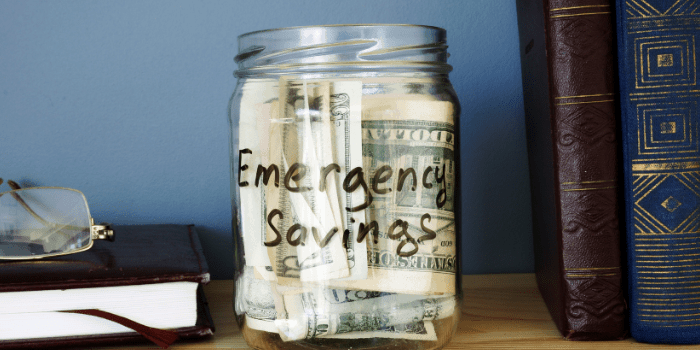How to Save Money on Daily Expenses in Incredible Ways
Apr 16, 2023 By Triston Martin
Nowadays days, in our culture of immediate gratification, it is more vital than it has ever been to be able to keep your attention on finding ways to save money whenever and however you can. Hence, to assist you in keeping track of your spending patterns and reducing your costs, here are ways to save money on everyday expenses, beginning now. It certainly qualifies as quick satisfaction.
Pay Off Your Debts
If you have a lot of debt and are attempting to save money through budgeting, you should focus on paying off the debt first and still trying to figure it out. The monthly interest and principal payments you make on your loan will tell you. You may promptly deposit that sum into savings when you no longer have to make interest payments on your loan. One way to make the debt more manageable is to open a personal line of credit.
Reduce How Much You Spend at Eateries.
Restaurant meals are one of the most direct costs to reduce when trying to save money, as they are typically more expensive than meals prepared at home. How to save money on everyday expenses? By try cutting back on the number of times you dine out, and use credit cards that provide rewards for dining out. While eating out, you may save money by ordering appetizers or sharing an entree with a friend. You may save money by forgoing the after-dinner beverages and dessert.
Keep Track Of Your Spending.

Keeping track of your spending is the first step in establishing a savings plan. Be sure to log your outlays, from groceries to coffee to monthly bills to cash tips. Keep track of your outlays using whatever method most appeals to you: pen and paper, a basic spreadsheet, or a cost-free app. After your data, you may total various expenses like food, petrol, and rent. Check your bank and credit card statements to double-check your totals.
Establish Your Top Financial Concerns.
Personal ambitions are the third most important factor in determining how you should set aside your money. Let's say you need to replace your automobile soon and decide to start saving for it now. Yet, it's crucial to avoid putting retirement planning on the back burner in favor of meeting immediate requirements. You can better choose how to distribute your resources if you learn to prioritize your savings objectives. There are many ways for seniors to save money on everyday expenses.
Make Purchases with A Credit Card That Offers Cash Back.
Make the most of your ordinary spending with a cash-back credit card. Some credit cards offer a flat rate of cash back on all purchases. There are also cash-back credit cards that offer incentives for making particular purchases, such as petrol, grocery, travel, and dining. If you have one of these cards, use the one that provides you with the most cash back at these establishments to maximize your rewards. Be cautious about charging only what you can afford to repay each month, as the interest you'll wind up paying will wipe out any rewards you would otherwise receive.
DIY Wherever Possible.
In many cases, the time you save justifies paying a little more for a more convenient service. Yet, if you have the time and inclination, DIY solutions might help you save money without sacrificing quality. You may promise to brew your coffee at home several times each week and buy a cup from your local coffee shop on the other days. The same holds for restaurants. You may save money by cooking in bulk on the weekend and eating out sometimes if you look for easy recipes at home.
Set Up an Automatic Savings Plan.
What if I told you that you could save money without even trying? Yes, arranging a monthly transfer from your checking account to your savings account is possible. If that scares you, consider diverting 10% of each paycheck into a savings account via direct deposit instead. Boom!
Make Good Use of Any Windfalls or Unexpected Cash Flows.
Use any inheritance, tax return, or work bonus you may receive. When we say "good usage," we don't mean collecting that snazzy new stamp or letting it sit in the bank. Instead of putting that money in the bank, you should use it to pay off your debts, such as your credit card or student loan balances. If you don't owe anyone money, it's wise to put spare cash into an emergency fund.
The Proper Way to Begin Financial Savings. Now.
The best way to save money on everyday expenses is to develop good financial habits and prioritize saving for the future above spending money on things you desire. Go ahead and do it! A simple secret can break the pattern of living paycheck to paycheck: Before the start of the month, create a budget starting with $0.

Intentionality is vital when creating a budget. You may determine how much of your monthly income you can save and track your spending habits with its assistance. With a zero-based budget, every dollar is designated for a specific purpose before being put away for future use. Remember that the amount of money you make is less significant than how much you save and invest.





